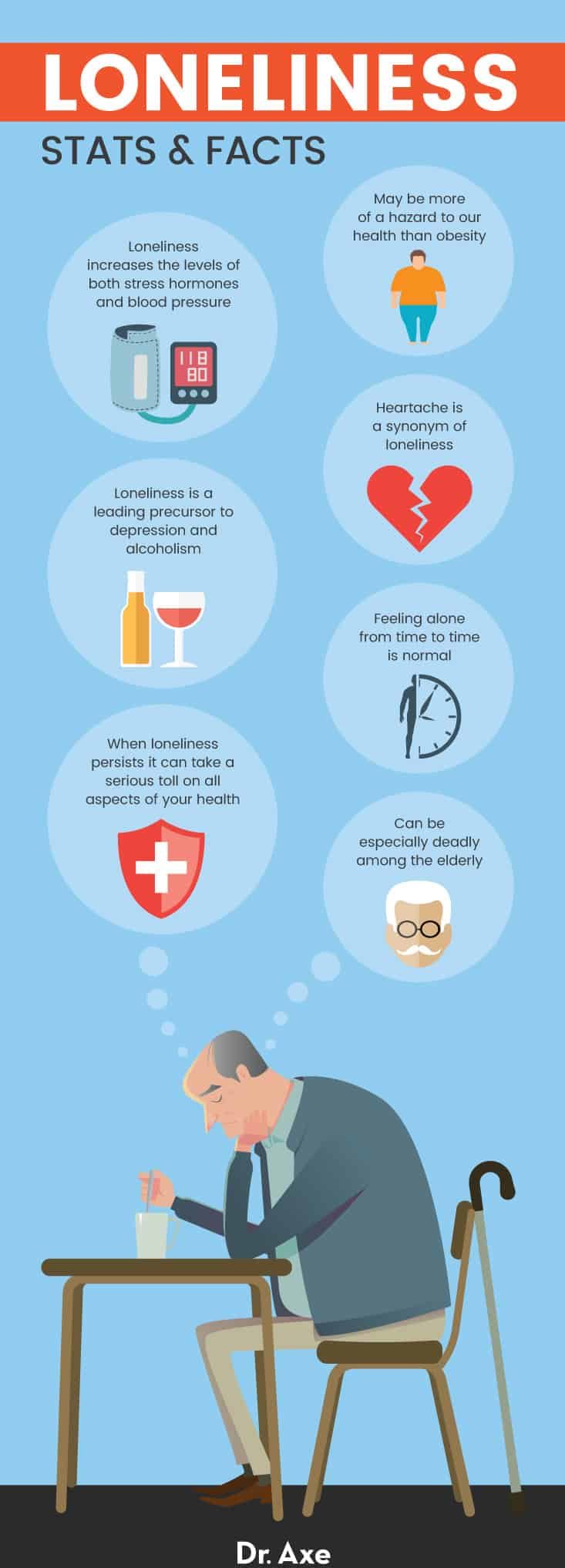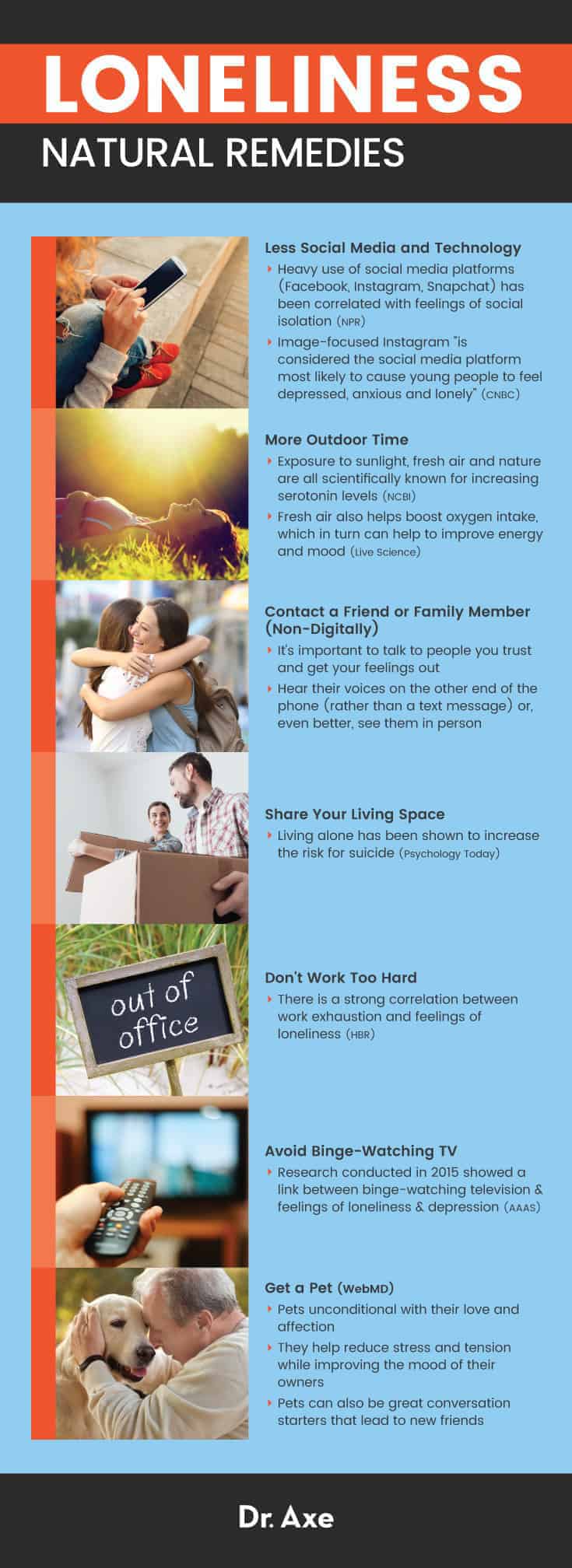This Dr. Axe content is medically reviewed or fact checked to ensure factually accurate information.
With strict editorial sourcing guidelines, we only link to academic research institutions, reputable media sites and, when research is available, medically peer-reviewed studies. Note that the numbers in parentheses (1, 2, etc.) are clickable links to these studies.
The information in our articles is NOT intended to replace a one-on-one relationship with a qualified health care professional and is not intended as medical advice.
This article is based on scientific evidence, written by experts and fact checked by our trained editorial staff. Note that the numbers in parentheses (1, 2, etc.) are clickable links to medically peer-reviewed studies.
Our team includes licensed nutritionists and dietitians, certified health education specialists, as well as certified strength and conditioning specialists, personal trainers and corrective exercise specialists. Our team aims to be not only thorough with its research, but also objective and unbiased.
The information in our articles is NOT intended to replace a one-on-one relationship with a qualified health care professional and is not intended as medical advice.
How to Overcome Loneliness
July 8, 2021

Loneliness may be more of a hazard to our health than obesity, according to a 2017 article published by the American Psychological Association in Washington, D.C. And researchers even liken the potential health damage of social isolation and loneliness to what occurs when smoking 15 cigarettes a day.
Studies like this highlight what’s being called a “loneliness epidemic” in the U.S. Today, as we face an unprecedented pandemic and spent most of 2020 practicing “social distancing,” people have an even greater risk of chronic loneliness. This is not only a threat to our social health, but to our physical, mental and emotional well-being, too.
Feeling alone from time to time isn’t abnormal or necessarily cause for alarm, but when feelings of isolation and loneliness persist, it can really take a serious toll on all aspects of your health — and often, you won’t to see the negative health impact until years later.
People of all ages can feel lonely, but this emotion can be an especially deadly among the elderly. A 2012 report by the National Academy of Sciences found that loneliness and social isolation in older men and women is linked to increased mortality.
Now, more than ever, we need to take care of ourselves and those around us — spreading positivity and maintaining connections, even while remaining physically isolated. Thankfully, there are ways to combat loneliness and spread job to those who are feeling alone.
Related: How to Overcome Jealousy to Improve Overall Health
What Is Loneliness?
What is the actual loneliness definition? Loneliness is the state of feeling lonely. The Merriam-Webster dictionary defines lonely in a number of ways, including: being without company, cut off from others, sad from being alone, or producing a feeling of bleakness or desolation.
It’s really important to note that being physically alone doesn’t just automatically equate to loneliness. It’s actually a sense of isolation and feeling as though something is missing. You can be in a room full of people and still feel lonely, which is perhaps the most difficult form of loneliness.
The solitude definition, on the other hand, is when you are alone, but not lonely. This can be a positive and constructive state of engagement with yourself. Many people benefit from daily moments of solitude.
Health Resources & Services Administration reports the following loneliness statistics:
- One in 5 Americans report sometimes or always feeling lonely or socially isolated (although it’s likely been more during the pandemic).
- 43 percent of seniors feel lonely on a regular basis.
- Along lonely seniors, there is a 45 percent increased risk of mortality.
- Poor social relationships are associated with a 20 percent increase in risk of coronary heart disease and a 32 percent rise in stroke risk.
Related: How to Cope With Cabin Fever: Symptoms, Tips & More
Symptoms
So how do you know if you’re lonely? Some of the most common signs of loneliness include:
- Overwhelming feeling of social isolation, even when you aren’t alone
- Feeling disengaged and alienated
- Inability to connect with people on a deep, intimate level
- Not having any “best” or close friends
- Feeling like no one really “gets” or understands you
- Feeling worthless and emotionally drained
In addition to these symptoms, feeling alone and isolated can also impact your physical health, leading to symptoms like fatigue, trouble sleeping, suppressed immune system, weight gain and inflammation.
Loneliness is a leading precursor to depression and alcoholism, as well as all kinds of other medical concerns. Why would this be? For starters, loneliness has been found to increase the levels of both stress hormones and blood pressure, which has a serious negative impact on one of your most vital organs: the heart. No wonder a loneliness synonym is “heartache.”
Is there a loneliness test? There actually are some tests you can take to determine if you are struggling with loneliness. For example, you can take The Loneliness Quiz, which is said to be based upon the UCLA Loneliness Scale.
What are the risk factors for loneliness? Researchers believe that feeling lonely is more likely among people:
- living alone
- being unmarried (single, divorced or widowed)
- not participating in social groups
- having few friends
- having strained relationships
- people struggling with substance use, depression and dementia are also at a greater risk of chronic loneliness
Related: What Is Autophobia? How to Treat the Fear of Being Alone

Related: Are You Addicted to Doomscrolling? (Plus How to Stop)
What to Do About It
Occasional feelings of loneliness are not problematic if you do something to relieve yourself of lonely feelings. When our social health is out of balance, it can lead to a lonely, isolated state, so we need to focus on engaging in actions that will give you life and energy again.
Now let’s look at some of the best natural ways to combat feelings of loneliness and get to a much more enjoyable state of mind and being.
1. Less Social Media and Technology
You may enjoy social media at times, but at other times you realize that you may be taking it too far. Technology and social media can be quite addicting and time-consuming.
On the positive side, you are able to keep in touch and maybe even form relationships with people all over the world.
On the negative side, you may find you’re spending a lot less time connecting with people in person, getting outdoors, exercising, being creative and practicing other habits on a regular basis that help decrease feelings of loneliness.
A study published in 2017 in the American Journal of Preventive Medicine found that heavy use of social media platforms, including Facebook, Instagram and Snapchat was correlated with feelings of social isolation. Specifically, this study looked at 1,787 adults in the United States between the ages of 19 and 32 and suggests that people who spent more than two hours each day on social media had double the likelihood of feeling socially isolated and lonely.
Researchers also found that the people visiting social media most often (58 visits or greater each week) were more than three times as likely to feel socially isolated compared to people who visited less than nine times each week.
It’s also really important to consider the effects of social media and technology use on children when it comes to loneliness. A U.K.-wide study conducted by the Royal Society for Public Health released in May 2017 revealed that imaged-focused Instagram “is considered the social media platform most likely to cause young people to feel depressed, anxious and lonely.” Snapchat came in second followed by Facebook, Twitter and YouTube.
It’s totally up to you what social media you choose to take part in (or allow your children to take part in), but reducing your time using technology in general can have a major positive impact on your life and actually help with feelings of loneliness. An idea to remember is “disconnect to connect,” which means being intentional about being present in the moment, especially when you are spending time with loved ones or doing something you enjoy.
What can you do to find “social media balance”? Try these tips:
- Put your phone on airplane mode in the evening, a few hours before bedtime.
- Don’t check work emails after hours.
- Don’t text or use social media during family meals.
- Use social media to maintain positive connections with friends and family.
2. More Outdoor Time
When you’re looking to overcome loneliness, getting out of your house and into the stress-relieving outdoor world is an excellent idea. When appropriate, you can also choose an outdoor space where interaction with other people will be possible, such as a dog park or a hiking trail.
Getting into nature is also a helpful option if you don’t currently have the option to see a loved one in person, but are looking to relieve loneliness and depression.
Exposure to sunlight, fresh air and nature are all scientifically known to increase serotonin levels, which is a brain chemical that improves a person’s state of mind. When serotonin levels are higher, researchers have found that people tend to be happier and “that positive emotions and agreeableness foster congenial relationships with others.”
So, in other words, getting outdoors and boosting those serotonin levels on a regular basis can likely help improve the sympathetic relations you have with others, which can help decrease loneliness.
Fresh air also helps boost oxygen intake, which in turn can help to improve energy and mood. Living in mountainous areas with lower oxygen levels has even been linked to increased rates of depression and suicide. Fresh air is certainly one of the most basic yet essential lifelines of good health.
You can also try earthing to combat feeling alone, which can help reduce stress hormones and foster your connection with the earth.
3. Reach Out to a Friend or Family Member
Sometimes when you feel like you’re suffering from burnout or exhaustion, you may think that being alone is best, but it often helps to spend quality time with a loved one in these moments.
Isolating yourself is only helpful when it promotes feelings of solitude rather than loneliness. Remember that solitude is a positive state of being alone, while loneliness is a negative state. When you’re feeling really stressed out, lonely or depressed, it’s always important to talk to people you trust and get your feelings out.
It’s also a great idea to hear their voices on the other end of the phone (rather than a text message) or, even better, see them in person when possible. Let yourself be supported by those around you and you are less likely to feel so alone.
4. Share Your Living Space
When people feel lonely, they have a harder time handling stress well. Living alone has also been shown to increase the risk for suicide in both the young and the old. If you’re struggling with loneliness and live alone, you may want to consider having a roommate.
A few years back, a Dutch retirement home came up with an answer to loneliness for both the elderly and the young — it actually offered free housing to students if they agreed to spending time with the residents of the retirement home.
In exchange for a rent-free living space, the students were required to spend a minimum of 30 hours each month being “good neighbors.” This intergenerational living situation served as a way of encouraging both the old and the young to interact with each other in a way that can help foster feelings of connectedness rather than isolation and loneliness.
Even when sharing a home with someone isn’t possible, daily interactions over the phone, or by typed or written letters, can be extremely helpful.
Related: Benefits of Silence + How to Practice It

5. Don’t Work Too Hard
According to the a 2017 article published in the Harvard Business Review, there is a strong correlation between work exhaustion and feelings of loneliness. So the greater the level of burnout due to work, the more lonely people seem to feel. This affects a lot of people today since apparently double the amount of people today say they are always tired compared to two decades ago.
It makes sense that when we are exhausted we’re less likely to feel physically and mentally well, and we’re also less likely to have energy for social engagement and positive relationship maintenance.
Our jobs, and life in general, can be quite demanding, but do what you can to not overwork yourself and make natural stress relievers a part of your daily routine. Try to incorporate fika, the Swedish practice of meeting with others for coffee and a mental health break.
6. Avoid Binge-Watching TV
You’ve probably seen some of those quintessential loneliness pictures featured on various pharmaceutical commercials for depression. Loneliness can certainly lead to depression, and there is a habit that is linked to both.
The term “binge-watching” may be common these days, but that wasn’t always the case. Watching episode after episode of your favorite show can be fun at times, but research conducted in 2015 showed a link between binge-watching television and feelings of loneliness and depression.
So while watching more than one episode of a favorite show in one sitting can be fun from time to time, watching several episodes every night for hours on end may lead to feelings of isolation and loneliness.
7. Adopt a Pet
For some people, a furry four-legged friend helps them feel less lonely. Not only are pets unconditional with their love and affection, but research has shown that they help reduce stress and tension while improving the mood of their owners.
According to a study published in Aging & Mental Health, pet owners were 36 percent less likely than non-pet owners to report loneliness, while living alone and not owning a pet was associated with the greatest odds of reporting feelings of loneliness.
Animals won’t provide the same level of connection as humans, but they are certainly companions that can be with you at home or even on the go. Plus, a dog is a good reason to go to a local dog park and socialize with other dog owners. Pets can also be great conversation starters that lead to new friends.
8. Get Involved
Getting involved in a community group is an excellent way to combat loneliness and support those in need. Research shows that community service promotes social connectedness and reduces loneliness among older adults.
Participating in volunteer and social programs can help to boost your mood, give you a sense of purpose and meet like-minded people. We know that performing random acts of kindness can promote healthy aging, boost happiness and improve relationships. Even starting small, with picking up litter at the local park or contributing to a community garden, can have a positive impact on your mental and emotional health.
9. Find an Outlet
Do you have a hobby that brings you joy? Perhaps it’s reading, working in the yard, listening to music or painting — these activities can serve as an emotional outlet, giving you a sense of happiness and connection.
Studies indicate that enjoyable leisure activities are associated with psychosocial and physical health and well-being. So during times of isolation, we can fight pervasive loneliness by honing in on the activities that bring us joy and positivity.
Related: What Is Art Therapy? Benefits & How It’s Used to Help Heal
Final Thoughts
- This loneliness epidemic is nothing to take lightly since it appears to be more threatening than other top public health concerns like obesity, weakened immune system, depression and heart disease.
- Our mental, physical and emotional health clearly improves from more real forms of connection and from being in nature. Being physically alone at times is a normal part of life and not automatically problematic, but when loneliness sets in and we don’t do anything about it, this is when our health can be negatively impacted.
- Since loneliness is a state of mind, it’s possible to feel lonely even when you’re not alone or you’re talking to someone online. This is why it’s so important to evaluate your life on a regular basis — what habits and choices are truly bringing joy and good health to your life, and what may be negatively affecting you and leading you to feel lonely?
- If you don’t have anyone you trust to reach out to and your feelings of loneliness are really getting you down, never hesitate to reach out to caring people at places like the National Suicide Prevention Lifeline: 1-800-273-8255.










